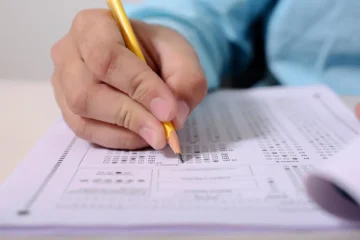Embarking on a career in special education is both a challenging and immensely rewarding path. These educators play a critical role in shaping the learning experiences and overall development of students with diverse learning needs. Their impact extends beyond the classroom, influencing inclusive practices across educational settings. To fully understand what it involves, an exploration of the responsibilities, qualifications, and skills needed is essential. Keep reading to unravel the depths of this noble profession.
Understanding the Role of a Special Education Teacher
Special education teachers play a multifaceted role as advocates for students with diverse learning, emotional, and physical needs. Through the creation of individualized educational plans (IEPs) within the Special Scholars Early Intervention Program, they tailor instruction to address each student’s unique abilities and challenges. Collaboration with parents, educators, counselors, and specialists is essential to provide comprehensive support.
These educators also focus on fostering social and emotional development, addressing behavioral challenges, and integrating assistive technology to enhance learning outcomes. Their adaptability and commitment ensure that all students have access to an inclusive and supportive educational experience.
Required Qualifications for a Career in Special Education
To embark on a career in special education, a bachelor’s degree in special education or a related field is typically the starting point. This foundational education equips individuals with essential knowledge of special education laws, educational psychology, and effective teaching strategies for students with disabilities. Following this degree, obtaining licensure or certification is often necessary, varying by state or region. This credential ensures educators meet specific standards and possess the necessary expertise to support students with special needs effectively.
For those aspiring to leadership or specialized roles within special education, further education such as a Special Ed. leadership certificate can be advantageous. This certification prepares individuals to administer special education programs efficiently, developing both teaching and leadership skills. Continuous professional development remains vital in this field. Engaging in workshops, seminars, and advanced coursework enables educators to stay abreast of new teaching methodologies, regulations, and technologies, enhancing their effectiveness in the classroom.
Developing Essential Skills for Educating Students with Special Needs
Teaching students with special needs requires a blend of inherent and learned skills. Patience and empathy are fundamental, enabling educators to connect with their students and grasp their unique challenges. Effective communication is key, allowing teachers to convey complex information clearly to students, parents, and colleagues.
Problem-solving is essential for addressing individual educational barriers creatively, whether through personalized materials or specialized programs. A commitment to inclusivity and advocacy drives the pursuit of environments that support the growth and acceptance of all students, promoting a more equitable education system.
Career Opportunities and Pathways in Special Education
A career in special education extends beyond traditional classroom roles. Graduates can pursue various positions such as early intervention specialists, special education coordinators, or inclusion teachers, catering to diverse student needs. Some professionals choose paths in policy-making or advocacy, influencing legislation at local, state, or federal levels to enhance special education accessibility and quality.
Opportunities exist in non-profit organizations, private educational services, and consultancy roles, where individuals develop programs, offer training, and guide families through educational processes. With experience and further education, leadership roles like special education director or school principal become achievable, allowing professionals to oversee and enhance special education services.
The Impact of Special Education Professionals on Society
Special education professionals play a vital role in our society, advocating for inclusion and equality for students with special needs. Their efforts extend beyond imparting knowledge to shaping practices that foster independence and meaningful contributions to communities.
Through their advocacy, they’ve made educational and public environments more accessible, promoting acceptance of individual differences. Their guidance has led to countless success stories, showcasing the transformative impact of their work from early education to adulthood. They reflect society’s values of equality and compassion, contributing to a more understanding and inclusive future for all.
Overall, a career in special education offers abundant opportunities for meaningful societal change. It requires lifelong learning, advocacy, and constant development to foster supportive environments for all learners. Special education professionals are dedicated heroes, shaping an inclusive future for generations to come.



